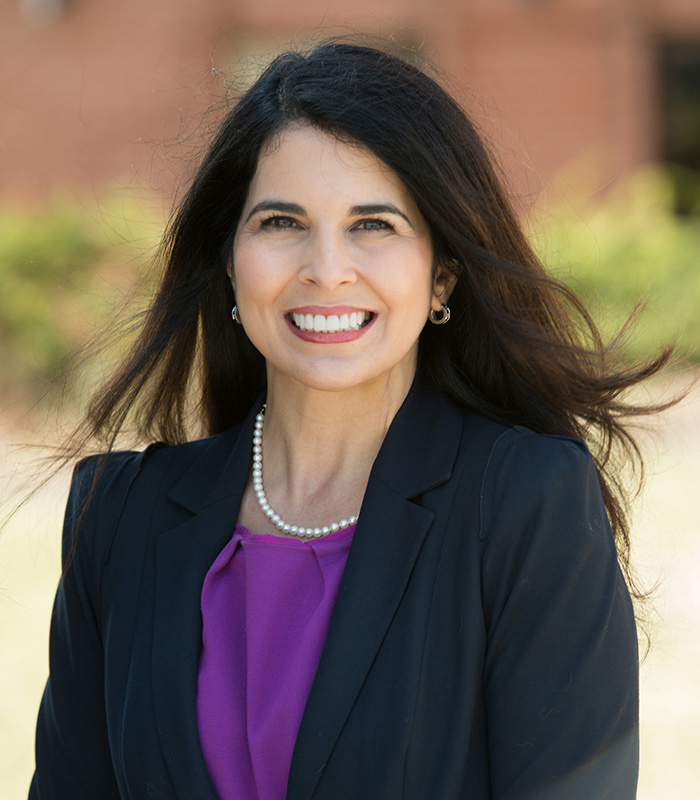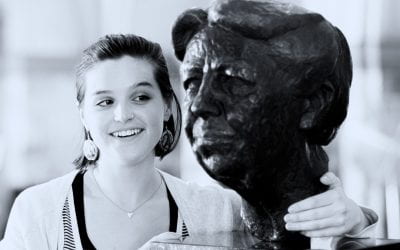The Growing Need for Effective Teacher Preparation Programs in Today’s Schools
Alumni essayby PHYLLIS CAVALLONE-JUREK
(EDUCATIONAL SUPERVISION & ADMINISTRATION, ’98)
I’m often quoted as saying, “Don’t tell me you can’t do something because it isn’t ‘my job.’” In education, everything about our students is part of our job description and our ministry. We simply must find a way. We lift up those so they are transformed to lift up themselves, help others around them and ultimately contribute to society. We care for the whole child and we do it in a school setting with limited funds and a host of bureaucratic policies. We become problem-solvers to simply find a way to meet the myriad needs of our students, families, staff and community. We do it not because it is or isn’t part of our job description, but because it needs to be done.

Today’s school principal needs to be an instructional leader, a budget manager, a legal consultant, a mental health advocate, a counselor of sorts, a facilities manager and a master of public speaking. As a Catholic school principal, I am also the faith leader in my school. Where do educators and administrators get the practical training needed for this ever-changing, highly demanding work? How should our teacher and administrator preparatory programs dramatically change to incorporate these practical skills?
At the very least, they need to incorporate more coaching and communication skills-building. This must be done while learning the valuable skill of building capacity among staff, so that the principal can have more time to focus on students’ academic and socio-emotional success as well as attending to other individual or school needs.
Principals are trained as instructional leaders, yet all too often time sensitive, urgent matters push this critical task to the very bottom of our daily to-do list. Principals have to prioritize their day so that the instruction, coaching and mentoring piece remains key to the school’s development. Principals need to mentor and develop our newer teachers and continue to infuse energy and find ways to continue to develop our master teachers. In my opinion, leadership preparation programs need to incorporate skills that develop their teachers, including coaching techniques.
Teacher burnout is a reality in education. But when we nurture our teachers’ craft, their effort and productivity soars. Professional growth spurs enthusiasm for teaching that is contagious — it can ignite students’ joy of learning which permeates every aspect of the classroom and school. Much of how our students regard learning and respond to challenges imprints their resilience and establishes a path that shapes aspirations and achievements in school and their adult life. If a “happy wife equates to a happy life,” as the old saying goes, so too is the impact of a happy teacher genuinely excited to learn alongside his or her students. A happy, passionate teacher can multiply that love of learning tenfold by inspiring a generation of future scientists, writers, lawyers, teachers and productive citizens of the world.
How can we best foster deep thinking in a classroom? Do our teacher preparation programs prepare our teachers adequately enough to create classrooms that allow students to deep-dive into subjects and follow their curiosity? How can our education programs help ignite the classroom so that the joy of learning we see in our kindergarteners remains as children advance through their schooling? As educators, are we being trained to be the sage on the stage or the guide on the side?
Additionally, we cannot underestimate the importance of interpersonal skills, particularly in today’s world. We are often flooded with emails, parent requests and student interactions. It is easy to get tired and overwhelmed. New and seasoned educators need the skills to navigate difficult conversations, unexpected encounters, and topics they might be personally uncomfortable with discussing. Developing the ability to craft thoughtful responses is an essential and necessary skill in today’s schools. A carefully worded verbal interaction can immediately de-escalate a sensitive situation.
Thoughtful, diplomatic and compassionate communication may not always be an easy task, and truthfully sometimes it can be quite overwhelming. I have personally found this skill easier for me with age. There are many conversations that hold great value with parents. Sometimes the brief encounters are just as powerful as the more involved sit-downs. Educators should not shy away from being very real with parents and students.
I have been involved with many parent sit-downs which evolve into parent coaching and sharing of the many trials and tribulations of raising children in this very complex world. While parents and principals may not always agree on every aspect of a decision or policy, parents should always feel that at the end of the day, you are an extension of them in every way and that you care deeply for their children.
“‘Don’t tell me you can’t do something because it isn’t ‘my job.’ ’ In education, everything about our students is part of our job description and our ministry.”
– Phyllis Cavallone-Jurek
Educational Supervision & Administration, ’98
Both teacher and administrator preparation programs need to include and emphasize communication skill building. Communication may seem to be thought of as one of those “soft” skills, but once an educator is on the job, they will soon realize the need to communicate effectively and compassionately. A combination of case studies, troubleshooting scenarios and access to clinical experiences in highly functional schools should be part of the overall preparation. When we nurture the relationships with our parents and children by developing our communication and ability to listen, we help create a caring and nurturing school.
When I reflect on the effectiveness of teacher preparation at St. Therese, I am reminded and grateful for the excellent graduate leadership program I had at Roosevelt University. My clinical experiences were authentic and empowered me to take on professional challenges and succeed as a school leader. We were taught to build school capacity, increase functionality, and create a healthy environment where the students are completely the focal point. While many challenges we face in schools can be complicated and just plain tough, when you are taught to make the decision in the best interest of students, as we were at Roosevelt … well, it is still hard work … but you know you are doing what is right, just and necessary.
Phyllis Cavallone-Jurek will be Chief of Academics for the Archdiocese of Chicago, starting July 2.
More in this section
In Memoriam | Winter 2024
Roosevelt University extends its deepest sympathy to the loved ones of recently deceased alumni and friends.
Roosevelt to launch alumni scholarship program
University leaders hope a new scholarship program will encourage alumni looking to continue their education to include Roosevelt on their list of potential universities.


